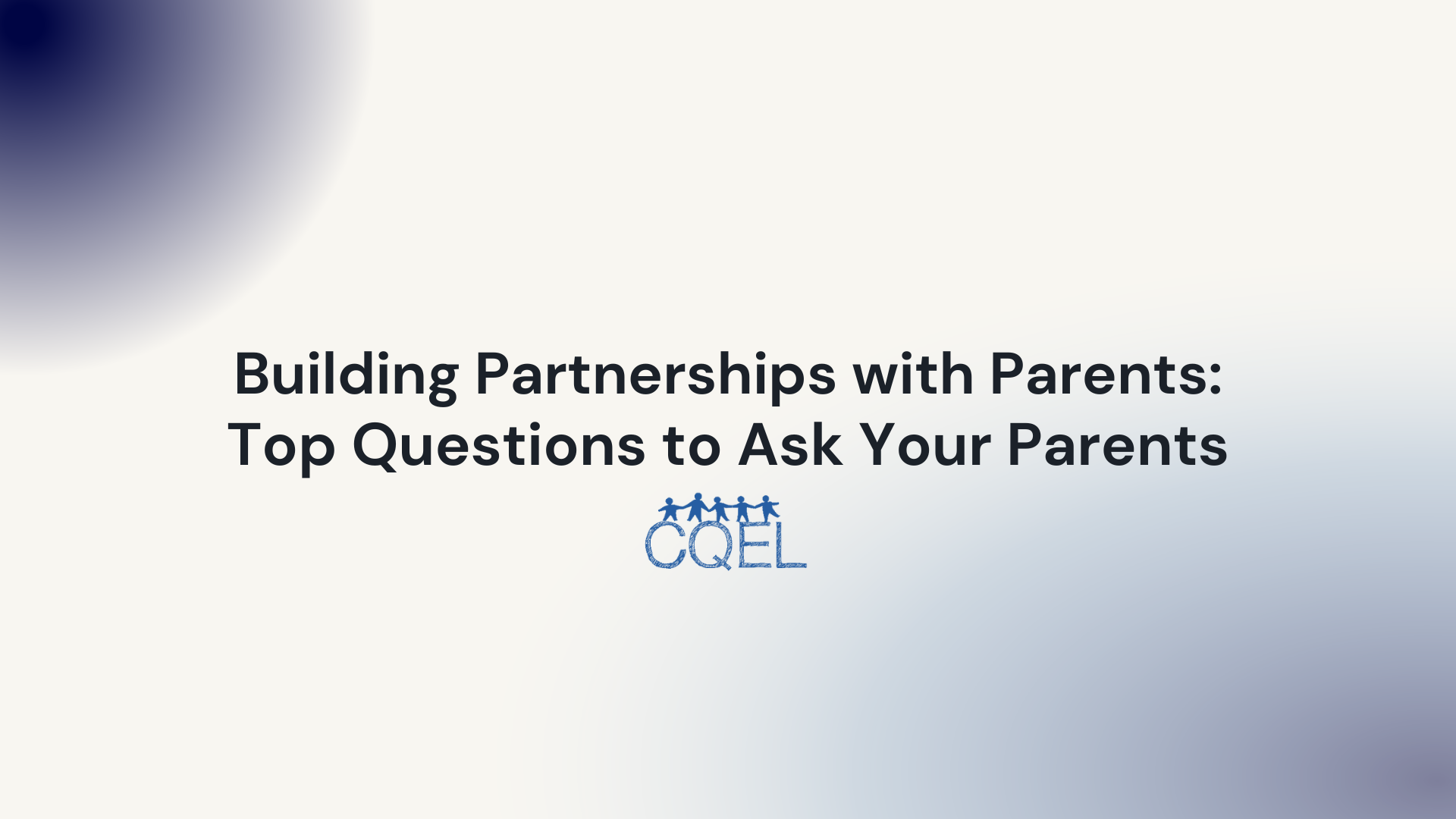Building Partnerships with Parents: Top Questions to Ask Your Parents
As a childcare provider, establishing a partnership with parents is integral to providing the best care and learning experience for the children in your charge.

In the ever-evolving world of childcare, one constant remains: the crucial role of parents. As a childcare provider, establishing a partnership with parents forms an integral part of providing the best care and learning experience for the children in your charge. In this comprehensive guide, we delve into strategies for building and nurturing these relationships, identifying key questions to ask parents and discussing best practices for effective communication. To support your journey, check out resources provided by Child Care Aware: Parent Partnership.
Understanding the Importance of Parent-Provider Partnerships:
Partnerships with parents play an indispensable role in children's development and well-being. These relationships create a bridge between the child's home life and your care setting, fostering a consistent and supportive environment. They also yield valuable insights into the child's unique background and needs, allowing for more personalized care. For more insights, visit the National Association for the Education of Young Children (NAEYC): Family Engagement.
Essential Questions to Understand the Child's Background:
Getting a sense of a child's background forms a critical part of providing individualized care. Asking parents about their child's home environment, interests, and personality can offer essential insights. This information can help you create a caring environment that respects and reflects the child's individual experiences. For further resources, visit Zero to Three: Understanding and Supporting Parents.
Essential Questions to Understand the Child's Developmental Needs:
Knowing a child's developmental needs is paramount in creating a nurturing and conducive environment for their growth. Discussing a child's emotional, social, cognitive, and physical development with parents can inform your approach to care. For more on understanding child development, consult the California Department of Education: Child Development.
Essential Questions to Understand the Parent's Expectations:
Gaining clarity on a parent's expectations helps ensure your care aligns with the family's values and goals. Asking about parents' aspirations for their child and their expectations of you as a provider facilitates this alignment. For effective strategies on conducting these conversations, refer to Harvard Family Research Project: Parent-Teacher Conference Tip Sheets.
Communicating with Parents: Best Practices:
Effective communication with parents requires active listening and empathic responding. By ensuring that parents feel heard and understood, you can strengthen your partnership and provide better care for the child. Learn more about effective communication at Child Mind Institute: Communication Tips for Parents.
Maintaining Open and Ongoing Communication with Parents:
Maintaining regular check-ins and updates with parents reinforces your partnership and supports the child's development. Timely feedback and open channels of communication foster trust and allow for prompt action when concerns arise. Further insights can be gained at Understood: Parent-Teacher Communication.
Case Studies for Successful Parent-Provider Partnerships:
Examining successful parent-provider partnerships provides valuable insights and practical strategies to enhance your relationships with parents. Real-life examples serve as a roadmap, allowing you to learn from others' experiences. Explore a variety of case studies at Early Childhood News.
Continuing Education for Childcare Providers on Parent Engagement:
Keeping abreast of the latest research and strategies in parent engagement is crucial for maintaining effective communication and partnerships. California-specific resources and programs can assist you in this ongoing learning process. Visit California Department of Education: Professional Learning for more.
Building and nurturing partnerships with parents is vital in providing the best care for children. As a childcare provider, you hold a unique position that extends beyond childcare to include fostering relationships with the family. By cultivating open communication, understanding, and mutual respect, you can create a holistic environment that supports each child's unique development. For more resources, visit Edutopia: Parent Engagement. Let us embrace this partnership journey, as every step we take contributes to the successful growth of our children.
